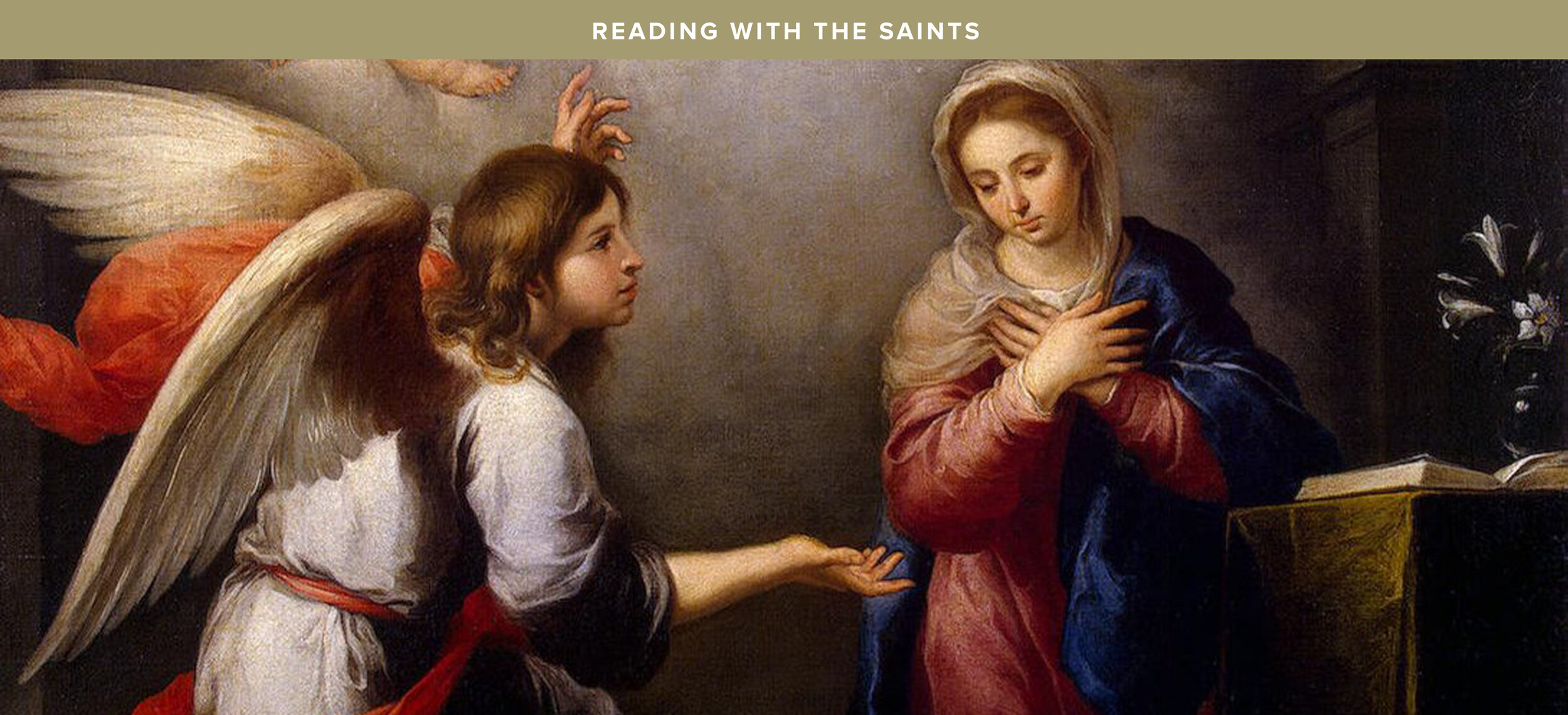Luke 1:28–29 with St. Bonaventure
“And he came to her and said, ‘Hail Mary, full of grace, the Lord is with you!’ But she was greatly troubled at the saying, and tried to discern what sort of greeting this might be.”
In reflecting on Gabriel’s salutation to the Virgin Mary, St. Bonaventure, the Franciscan Doctor of the Church, explains how the angel’s message reveals her “threefold excellence” and how her response displays her commendable nature.
First, the angel’s greeting shows her “dignity, virtue and charity.” Bonaventure teaches us that the angel “shows her to be commendable because of the fullness of goodness, and therefore lovable; to be commendable because of her great dignity, and therefore venerable; to be commendable because of the grandeur of her praise, and therefore honorable.” The angel, who speaks as a messenger of God, shows to us that Mary is lovable, venerable and honorable. Bonaventure shows how she is implicitly compared with Esther in her “incredible beauty,” and how she is worthy of veneration because the Lord dwells within her. Indeed, the Virgin Mary, who carries the Christ child in her womb, is foreshadowed by the Ark of the Covenant and the Temple, where the presence of God dwelt in a special way. Bonaventure also compares her to the heroines of the Old Testament—Abigail, Jael and Judith, who are all called “blessed” and who thus prefigure Mary in her blessedness.
Second, Bonaventure reflects on the Virgin’s response, commenting that she is “triply commendable, namely, in hearing, affection, and thought.” She listens to the message from the Lord with docility and silence, demonstrating a prompt obedience. Her affective response of being troubled by the angel’s words reveals her modesty. Her thinking on the message shows her sound judgment—the Seat of Wisdom herself thinking about Wisdom.
In these two short verses, we find so much to reflect on. The character of the Virgin Mary is shown to us. Her virtues are made manifest and we begin to see how God prepared her for this heroic moment for which she was destined. This scene should console us when the world seems to be spinning out of control, that the Lord is sovereign over history. He has a plan even when we do not. In addition, the Virgin Mary shines through in this moment as worthy of our veneration and imitation. We ought to imitate her dignity, virtue and charity in the moral life and her hearing, affection and thought in the spiritual life. [1]







